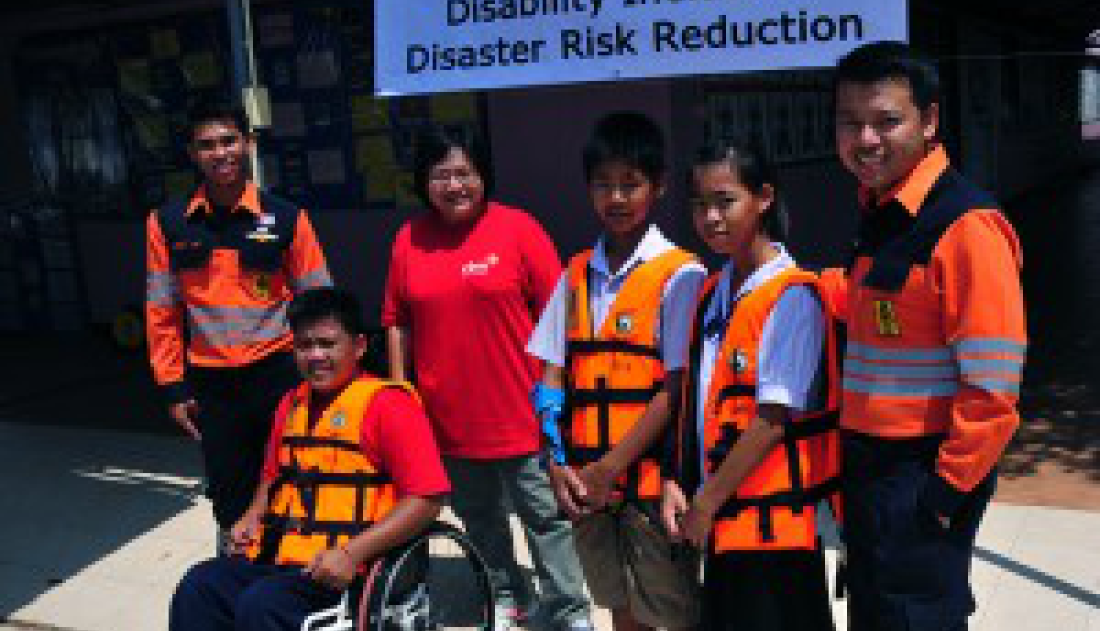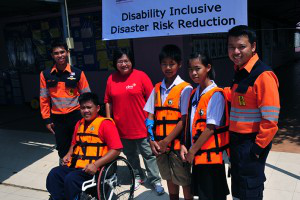

Persons with disabilities, when compared to the general population, face higher risks in conflict situations and natural disasters. Research shows that the mortality rate among persons with disabilities tends to be two to four times higher than among the general population, as demonstrated in cases such as the 2011 Japan earthquake and tsunami and hurricane Katarina in the USA. Moreover, for every person who dies during a disaster, it is estimated that three people sustain an injury, many causing long-term disabilities.
To compound matters, persons with disabilities are disproportionately more likely to be left behind in emergency responses and to fail to benefit from humanitarian services due to ability range of environmental, physical and social barriers. A recent study has confirmed that three-quarters of persons with disabilities do not have adequate access to basic assistance, such as water, shelter or food, in a crisis situation. Half of the persons with disabilities being surveyed also reported no access to disability-specific services, such as rehabilitation or assistive devices .
Persons with disabilities are a unique resource of knowledge and experience, which is often overlooked, to help build resilient societies and communities. A barrier-free environment enables full and equal participation in society by all, regardless of age, gender or disability status. The newly adopted international agreement, the Sendai Framework for Disaster Risk Reduction 2015-2030, set the stage to call for actions to meaningfully engage persons with disabilities in all stages of disaster risk reduction and responses, as well as for investment in accessibility, in both the physical environment and information and communication sectors, and ensuring that disability disaggregated data are in place for implementation, monitoring and evaluation of the Sendai Framework.
The first-ever World Humanitarian Summit (WHS), set to take place in Istanbul, Turkey on 23-24 May 2016, provides a timely opportunity to build on the progress made in Sendai and ensure that the Sendai Framework, together with other important international agreements such as the 2030 Agenda, are effectively and efficiently implemented on the ground.
 Welcome to the United Nations
Welcome to the United Nations


